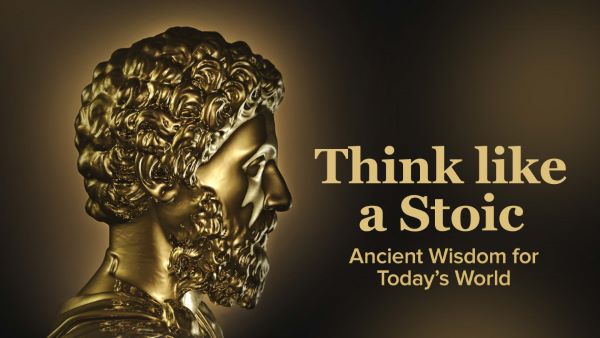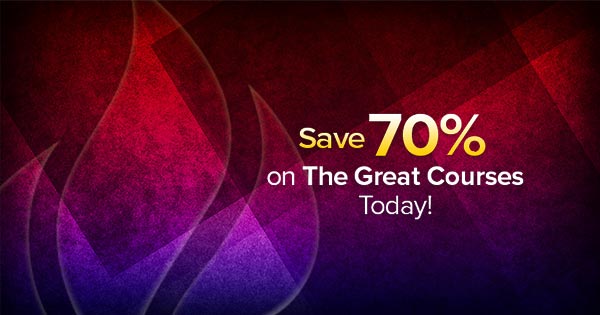“You could leave life right now. Let that determine what you do and say and think.” – Marcus Aurelius
Stoicism is an ancient Greco-Roman philosophy of life that’s analogous in its scope to philosophies or religions like Buddhism, Confucianism, or Christianity. It aims at helping people navigate everyday existence and the challenges that it may pose, as well as reflect on the broader meaning and direction of their lives. What should our priorities be? How should we interact with our fellow human beings? How are we to face the inevitable setbacks and finally face our own mortality? These are some of the questions that Stoicism helps us address in the pursuit of what the ancients called a eudaimonic life—that is, a life that is truly worth living.
Zeno
After a few years of studying with a number of other teachers, Zeno felt ready to begin his own school of practical philosophy, which became known as Stoicism.
- The basic ideas of Stoicism are rooted in Zeno’s experience during and after the shipwreck, as well as in what he learned by studying philosophy as taught by other schools: We do not control as much as we think we do about the world and our lives, as the sudden shipwreck demonstrated.
- We can recover from disasters by focusing on what is in our power, like Zeno changing his profession from merchant to philosopher.
- Following the example of Socrates, the most important thing in life is to live by the light of reason as a good member of the human community, rather than to pursue wealth and fame.
The Four Cardinal Virtues
- Practical wisdom tells us the difference between what we can and cannot change.
- Courage is not just physical but first and foremost moral: the courage to stand up and do the right thing.
- Justice tells us the right thing to do.
- Temperance is the notion that we should do things in the right measure, neither overreacting to situations nor failing to do enough to correct things.
THE DICHOTOMY OF CONTROL
The second pillar of Stoic philosophy—the dichotomy of control— was famously summarized by the slave-turned-teacher Epictetus at the beginning of his manual for a good life, The Enchiridion.
While we can influence our body, property, reputation, and office, ultimately, they’re not under our power. Even the healthiest body can be struck by disease or accident. Your property can be taken away from you for a number of reasons. And your reputation can be ruined through gossip and other people’s malicious intent.
KNOWLEDGE
Knowledge—or episteme for the Stoics—results from the understanding of a systemic web of knowledge, or how everything is connected to everything else. It is not solely the result of perceiving individual facts and arriving at right judgments about those facts.
In a sense, the Stoics were empiricists. They thought that human knowledge ultimately is rooted in sensory experience. But empirical data through sense impressions is only part of the story, as our judgment plays a major role in forming opinions. Knowledge in the strict sense, moreover, is arrived at only when someone puts together sensorial experience, sound judgments, and a comprehensive understanding of the nature of the world.
HUMAN NATURE
The Stoics thought that there are two major characteristics that, when combined, distinguish us from any other living species on the planet: We are highly social, and we are capable of sophisticated reasoning.
Virtue
A virtue is simply a behavioral disposition, which means that it’s a reflection of someone’s character. For instance, some people are prone to be generous, perhaps with their time or their finances. Generosity is a virtue, and it reflects well on the character of the person who offers it.
The opposite of a virtue is a vice. For instance, the opposite of generosity is stinginess. And nobody thinks that a stingy person has a good character.
Seneca on Time
Seneca remarks that we seem to squander much of the time we do have. He writes:
If you will pay close heed to the problem, you will find that the largest portion of our life passes while we are doing ill, a goodly share while we are doing nothing, and the whole while we are doing that which is not to the purpose.
Stoicism is meant to be practical, and there’s nothing more important for us than to reflect on how we spend time. According to the Stoics, our life is made meaningful precisely by the fact that it is finite and we never know when the last day will come. That’s Seneca famously said that the whole point of philosophy is, in a sense, to teach us how to die day-by-day.
“Show me a human being who is not a slave; one is a slave to lust, another to greed, another to ambition, and all are slaves to fear.” – Seneca
CATEGORIES OF EMOTION
Stoics divide what we call emotions into three broad categories: propatheiai, pathē, and eupatheiai.
Propatheiai, or proto-emotions, are essentially involuntary emotional reactions. They’re natural, inevitable, and probably beneficial, as they are a physiological signal that urges us to focus our attention on whatever is going on at the moment. The Stoics and modern psychology both accept that involuntary emotions such as these can take momentary control of our ability to think and even act.
The second category, the pathē, covers what we think of as reactive passions, such as fear and desire. The Stoics were in favor of minimizing or even erasing these from our mental makeup.
The eupatheiai are positive emotions, such as joy, and are thought consistent with rational behavior.
THE FRAMING EFFECT
Epictetus uses an analogy to remind us of the best attitude to adopt whenever we suffer a setback:
The true person is revealed in difficult times. So when trouble comes, think of yourself as a wrestler whom Nature, like a trainer, has paired with a tough young buck. For what purpose? To turn you into Olympic-class material. But this is going to take some sweat to accomplish.
The Enchiridion is a practical manual to live what the Greco-Romans called a eudaimonic life—a life worth living.
ACCEPTANCE
The Enchiridion begins in this way:
Some things are within our power, while others are not. Within our power are opinion, motivation, desire, aversion, and, in a word, whatever is of our own doing; not within our power are our body, our property, reputation, office, and, in a word, whatever is not of our own doing.
The only things truly within our power are our judgments (what Epictetus calls opinions), our decisions to act (or motivations), and what we consciously pursue or avoid (desire and aversion). These three categories correspond to Epictetus’s three disciplines: assent, action, and desire.
Nothing else is really under our control, Epictetus tells us. That includes all so-called externals, such as our bodies, our possessions, our reputation, and our jobs.
The Greek term enchiridion means “a little thing in the hand.” It often referred to a dagger or other small weapon, but it could also be applied to a book of precepts and sayings to keep with oneself for easy consultation.
Massimo Pigliucci
Massimo Pigliucci is the K. D. Irani Professor of Philosophy at The City University of New York. He holds a Ph.D. in Evolutionary Biology from the University of Connecticut and a PhD in Philosophy from the University of Tennessee, Knoxville. He is a fellow of the American Association for the Advancement of Science, which recognized him for his major contributions to studies of gene-environment interactions and his educational efforts to counter widespread pseudoscientific beliefs.
Massimo has published more than 170 peer-reviewed papers and authored or edited 14 books, including Nonsense on Stilts: How to Tell Science from Bunk and Philosophy of Pseudoscience: Reconsidering the Demarcation Problem (with Maarten Boudry). He studies and practices Stoicism and is the author of several books on the subject, including How to Be a Stoic: Using Ancient Philosophy to Live a Modern Life.
Massimo Pigliucci produces a podcast called Stoic Meditations, and his writings and musings can be found at massimopigliucci.com.
Suggested Reading
- The Cambridge Companion to the Stoics by Brad Inwood
- Lives of the Stoics: The Art of Living from Zeno to Marcus Aurelius by Ryan Holiday
- Stoicism by John Sellars
- A Handbook for New Stoics: How to Thrive in a World Out of Your Control. In it
- On the Shortness of Life
- On Anger by Seneca
- Letters on Ethics by Seneca
- Stoicism and Emotion by Margaret Graver
- Discourses, Fragments, Handbook Livre by Robin Hard
- Meditations by Marcus Aurelius
All the Best in your quest to get Better. Don’t Settle: Live with Passion.




Comments are closed.